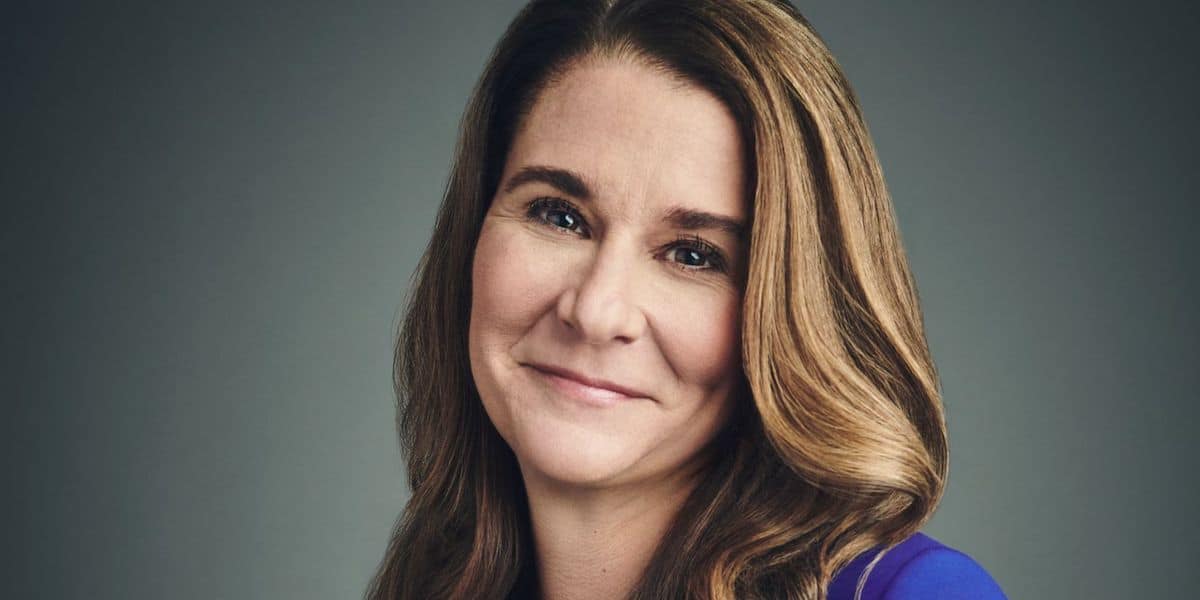Keynote Recap: Melinda Gates on the Future of Gender Equality
Global philanthropist Melinda Gates spoke with media executive and TEDWomen co-founder Pat Mitchell during the 2020 Texas Conference for Women. Here are the highlights of the conversation, lightly edited for brevity and clarity:
Pat Mitchell: The pandemic has been adversely and disproportionately impacting women; and some are worried that, because of this, we are experiencing a backward slide on gender equality. What is your response to this?
Melinda Gates: “Absolutely, the pandemic has exposed the gaps in society, the faultlines. But it is also creating opportunities for us. In the past, people thought: ‘Oh, this gender equality is a nice-to-do thing, we’ll get to it when we have time.’ No. What the pandemic has exposed is that we have to work on gender. If we don’t work on gender, this economic recovery is going to take far longer.
“The key infrastructure in this society that needs to be built back properly is women’s unpaid labor, this caregiving work that women so often do. If we can build that system back in a way that supports families and supports jobs and capitalism, then we are going to be better off as a society.”
You made the audacious decision to put a billion dollars behind the Equality Can’t Wait initiative. How are you assessing progress at this point?
“Like everything, progress is more difficult at this point. But I put a billion dollars down for several reasons. One is to say gender equality is important. Honestly, I got tired of guys doing this and women not being able to. And I know that when we have money in our hands, it is powerful. So, one of the things we are doing through this investment (through Pivotal Ventures) is investing in more women leaders to make sure we get more women in seats of power because when we have diversity—people of color and women—in positions of power, we make different decisions as a society.”
What can we do to strengthen male allies in the push for real and true equality across the board?
“I think we need to pull men into the conversation. And I think men need to step up and say ‘I am for diversity in my company’ in a serious way. I want more women and more people of color and I am going to follow through and measure and publish the results because we know that, in transparency and commitment, is when things start to change.
“We also need to be having honest conversations about where men are making mistakes and where we’re making mistakes. And, we need male leaders, and female leaders, but especially male leaders because they are in positions not just to mentor women but to sponsor women for jobs. To reach out and say: ‘You are ready for this position. You may not think you are but I know you are. Put your name in the hat’ because that not only gives the woman confidence but shows the rest of the managers: She’s ready.”
The theme of this conference is women leading the way forward. How important is it for you personally as well as professionally to have connections with women now?
“Connections with women have been a joy in my life but also the wind under my wings because when I’m struggling when doubt sets in, which all people have but women have in spades because society has told us to, who do I reach out to? My female friends. And they remind me: ‘You got this. Come on, you tell us to stretch; it’s time for you to stretch.’ Those connections have been fundamental to my entire life. I have a walking group; we meet on Mondays and have been doing it for 19 years. Now, we meet on WhatsApp and all walk in our neighborhoods and have little earbuds in our ears and still talk and walk even though we’re not physically together.”
You describe yourself as a “possibilist.” What does that mean?
“It means that I often see the problems in society, really see them and listen and hear and look for data. But then I see where are the opportunities, where can we use this to create change? A perfect example is in the U.S. now. Our economy is built on the backs of women’s unpaid labor. But we don’t recognize it, don’t talk about it much. Now with the pandemic, it is horrible for families. It’s so hard. But it is in our faces, in our homes. We’re living it, the entire society. We need to use this moment. It’s an opportunity to say how we want to change society; what we expect; what bills we want to go through Congress – not just stimulus but for the long-term.”
You’ve written that women can be the architects of the future. What does that future look like to you?
“It’s a society where we balance work and family life better; where we think about everybody and think about the workforce—which is not a workforce of the 1950s and 60s, when men went to work and women stayed home. We reimagine work, allowing people more flexibility. This is one of the opportunities of this time. People have said for a long time they want to work remotely. We’re figuring it out. It is about reimagining work to balance what we value in society.”
Read more highlights from the 2020 Virtual Texas Conference for Women.
